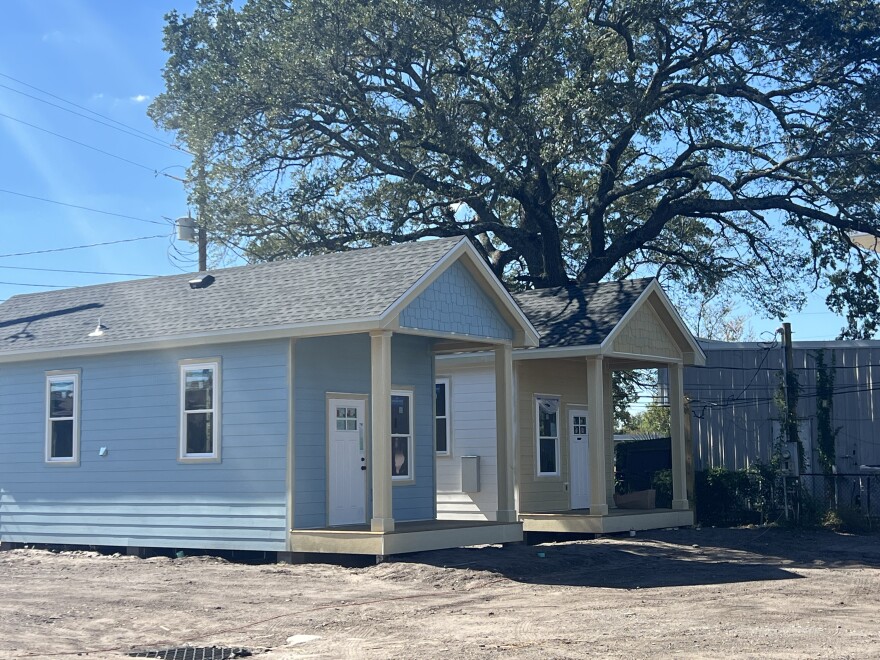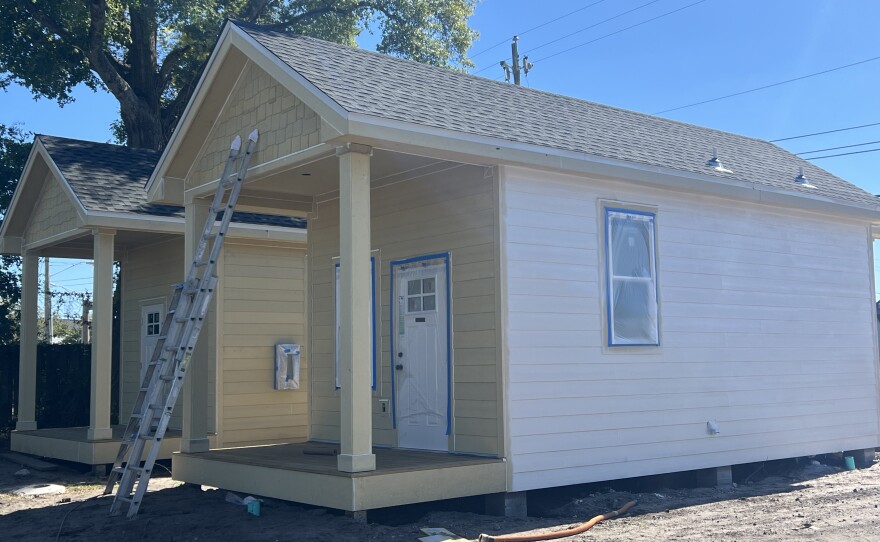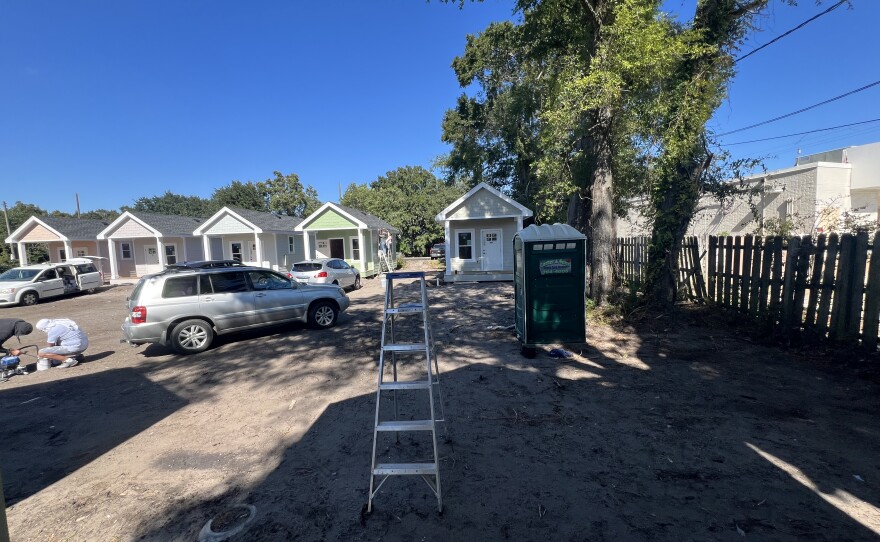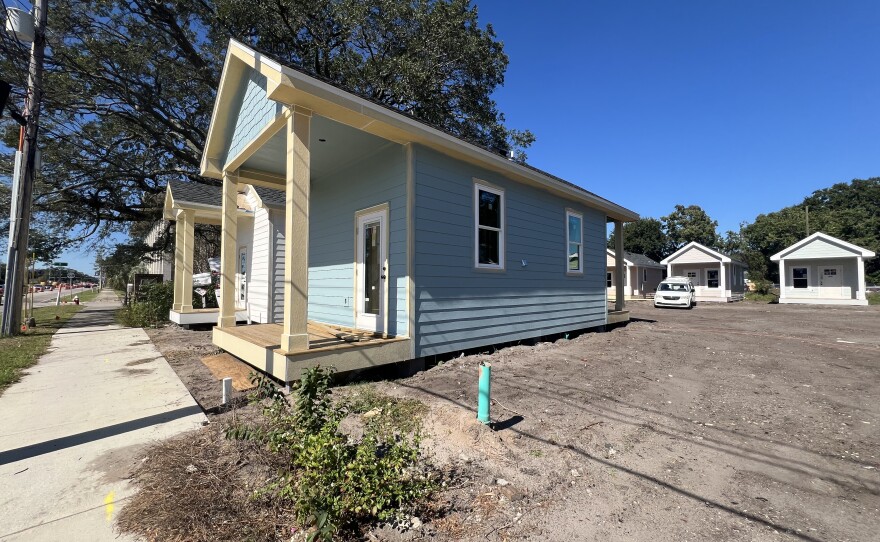As Escambia County leaders look for ways to expand affordable housing, some are turning to a smaller idea: tiny homes. A project now taking shape in downtown Pensacola is offering an example of what small-scale communities could look like.
Support Local Stories. Donate Here.
Trinity Village will soon open its doors to low-income seniors who need a place to call home. The nine homes are being built by the Catholic Diocese of Pensacola–Tallahassee. Deacon Ray Aguado leads the project.
“These are just under 300 square feet, but with ten-foot ceilings and a lot of light coming in," Aquado said. "We wanted to make it bright.”
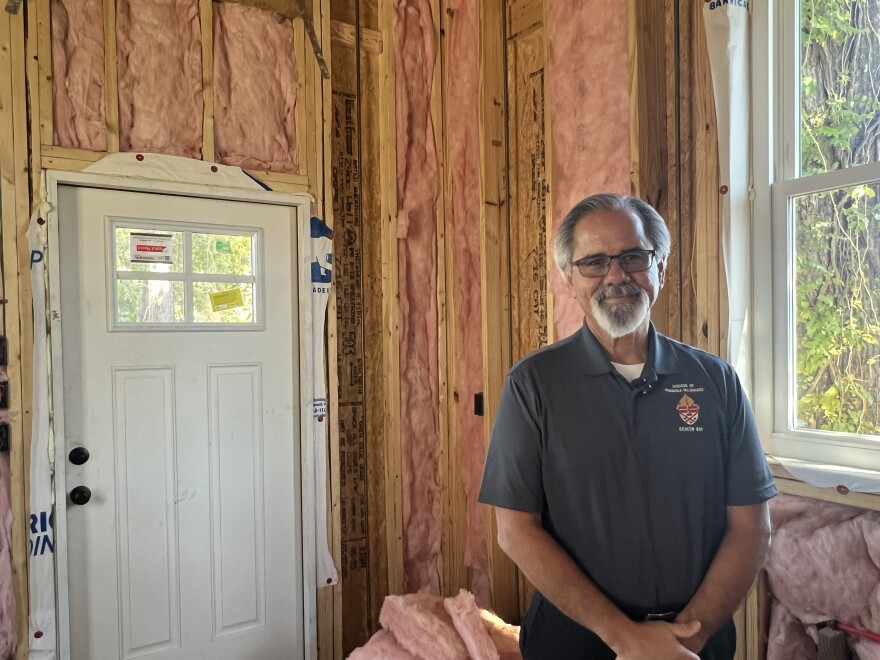
Rents are expected to be about $500 a month, which includes utilities. Applications are scheduled to open by spring.
The project aims to give seniors a permanent place to live. It also arrives at a moment when Escambia County commissioners are debating whether tiny-home communities should be allowed elsewhere.
RELATED: Land trust model offers new path to affordable housing in Escambia County
At a recent commission meeting, Commissioner Ashlee Hofberger suggested the county consider adopting Appendix Q, a section of Florida’s Building Code that allows homes under 400 square feet.
“My goal would be to adopt Appendix Q, so that we could allow for tiny homes to go in," Hofberger said. "And then the question would be what places could we put those in. So what zoning areas? See if we could move forward with a tiny home ordinance of some sort that would make everyone comfortable while still preserving the integrity of the communities.”
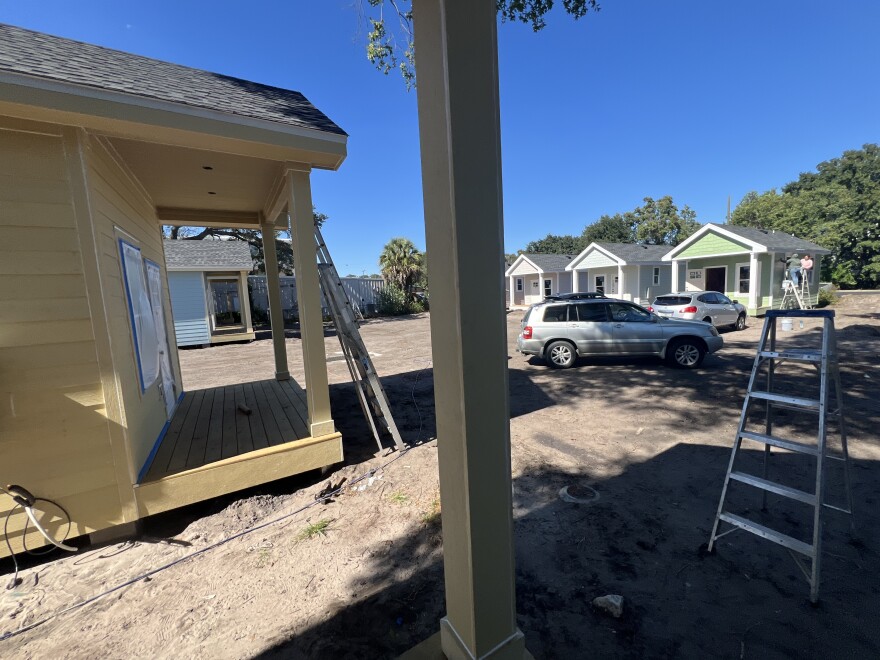
Some of her colleagues expressed hesitation. They raised concerns often described as NIMBY, or Not In My Backyard, meaning that people may support affordable housing in principle but resist it in their own neighborhoods.
In contrast, a state law known as YIGBY, short for Yes, In God’s Backyard, gives religious institutions more flexibility.
“It allows churches to build on property they own as long as it’s for affordable housing," Aquado said. "We still had to meet every Florida building code, but the City of Pensacola was very helpful. We started this almost four years ago, and they never said no. We just had to find a way to do it.”
Jeb Hunt serves on the Affordable Housing Steering Committee of J.U.S.T. Pensacola, a coalition of congregations, nonprofits, and residents that works on housing justice and policy reform. Through his work designing homes with Tom Hunt Residential Designs, he sees how housing affordability affects families throughout the county.
RELATED: JUST Pensacola gets support for affordable rental housing and civil citation proposals
“We did hear from a lot of people who were struggling to find something affordable," Hunt said. "These were people that seemed like they were doing everything right, working, raising families, contributing to the community, and they still weren’t able to find a safe and stable place to live. Tiny-home communities would offer a lower barrier to entry for homeownership and allow people stable housing."
Hunt said the key to success is not size alone. It is thoughtful planning.
“The same conditions that make any neighborhood successful are needed," he said. "That’s good design, green space, parks, good access to public transportation. Tiny homes shouldn’t just be a cluster of houses. They should be a place where people actually want to live and thrive."
He also understands the anxiety some feel.
“Some commissioners have raised concerns about how they might fit into existing neighborhoods, and I understand that because change can be uncomfortable," Hunt said. "But when tiny-home communities are thoughtfully designed with community engagement, they can blend in beautifully and actually strengthen the area around them."
And although Hunt does not see tiny homes as a complete solution, he believes they can play a part.
“Tiny homes aren’t a silver bullet," Hunt said. "They’re one important piece of a much larger puzzle. We still need affordable rentals, more duplexes, mixed-use buildings, and updating our land development codes. But the more tools we have in the tool chest, the better."
RELATED: Escambia County, Pensacola Habitat celebrate 15 new affordable homes
Back at Trinity Village, construction is nearing completion. The homes meet hurricane standards and include steel all-thread bars that reinforce the structure. One unit will be fully ADA accessible with a ramp and wider interior spaces.
“This has all been done with donated money, no loans or anything like that, no government money," Aquado said.
He said the idea was inspired in part by The Dwellings, a tiny-home community in Tallahassee that began with a small cluster and expanded to hundreds of units as demand grew.
Aquado pointed to that community as a model Escambia County could learn from. He said carefully planned small homes, paired with ongoing support, can bring stability to people who can no longer afford conventional housing.
Commissioner Ashlee Hofberger told WUWF there have been “no formal conversations” since the meeting, but her office is still “brainstorming… to come up with solutions,” she said. She hopes the board will continue the discussion “in the next few months.”

